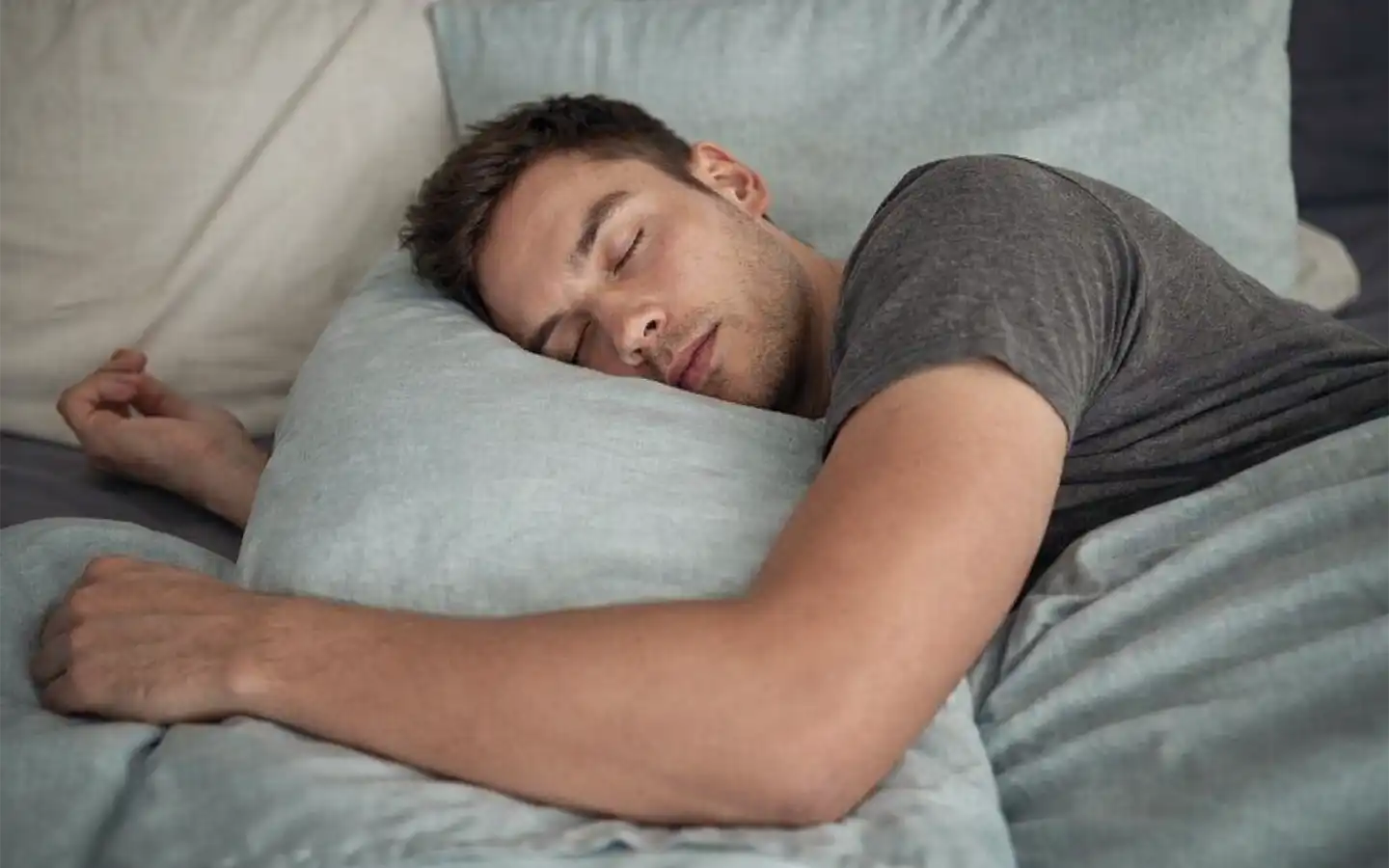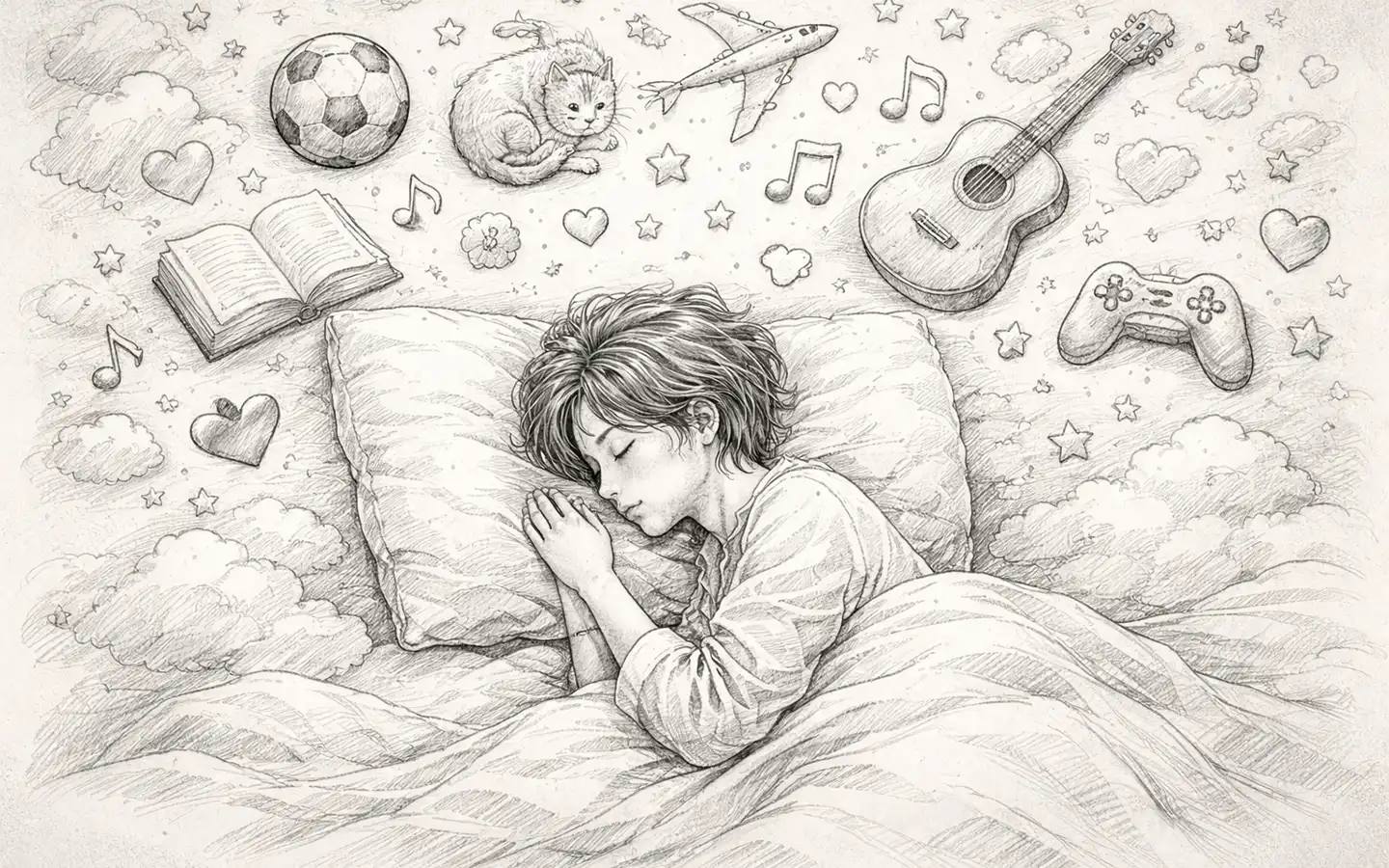June 9, 2025
Understanding Importance of Sleep for Mental Health
Sleep and mental health are connected in ways we can’t afford to ignore any longer.
We tend to think of them as separate topics, but how we sleep and how we feel mentally are part of the same story. Science tells us that this relationship goes both ways, which means poor sleep makes it harder to stay mentally and emotionally balanced, while mental and emotional strain makes it harder to get good rest.
If we are looking for solutions to feel better, think more clearly, and recover more fully, we need to look at sleep as more than just a habit or routine. It’s a key part of mental health that affects how we function at every level of our being.
How Does Sleep Affect Mental Health?
If you’ve ever wondered how sleep improves mental health, the answer lies in how deeply it supports the brain. The quality of your sleep plays a huge role in how well you are able to function during the day.
That includes how you cope with stress, how you respond emotionally, and how clearly you can think.
While you're asleep, your brain goes through specific stages that help it reset.
In deep sleep, it clears out waste, stores important memories, and lowers overall stress levels. During REM sleep, your brain processes emotional experiences. This helps you wake up feeling more balanced and able to handle whatever the day brings.
When those stages are disrupted or shortened, your brain doesn’t recover the way it needs to. That’s when you start to notice the difference. You may feel irritable for no reason, less motivated, or emotionally sensitive. Even one or two nights of poor sleep can make small challenges feel harder to manage.

The Sleep and Mental Health Connection Goes Both Ways
For a long time, poor sleep was seen as just a symptom of mental health conditions. But that understanding has changed.
Researchers now know the relationship between sleep and mental health is bidirectional. That means poor sleep can contribute to mental health problems, and mental health problems can make it harder to sleep. Each one fuels the other, and the longer the cycle continues, the harder it is to break.
For example, someone with anxiety might struggle to fall asleep because their mind is too active. But after a few nights of poor sleep, they start to feel even more anxious, even if nothing else has changed. Their tolerance for stress goes down, and emotional recovery never fully happens. The same thing can happen with depression, burnout, and other mood disorders.
Sleep and Different Mental Health Problems
Sleep problems show up differently depending on the mental health issue someone is dealing with.
Below are the most common conditions where sleep plays a central role, not just as a symptom, but as a part of the problem that needs to be addressed directly.
[CTA_INSERT]
Depression and Sleep
Depression affects how a person feels, thinks, and functions on a daily basis. It’s often described as a loss of energy, interest, or motivation, and it usually includes sleep changes.
Some people with depression struggle with insomnia. They can’t fall asleep or stay asleep, even when they’re exhausted. Others experience hypersomnia, which means they sleep too much but still don’t feel rested. In both cases, sleep is less restorative.
Sleep problems can also show up before depression does. This is one reason sleep quality is now being looked at as an early warning sign for mood disorders.
Anxiety and Sleep
Anxiety is often defined by excessive worry or fear, but it’s also a state of mental and physical hyperarousal.
People with anxiety often have trouble falling asleep because their thoughts are racing. When this happens, the nervous system stays in a state of alert, or the "fight-or-flight" response, making it harder to reach and stay in the deeper, more restorative stages of sleep. This means that even if they do fall asleep, they wake up often during the night, leading to fragmented sleep and feeling unrested the next morning.
This is why sleep is so integrally connected to anxiety. The less quality sleep a person gets, the harder it becomes to manage anxiety during the day. That leads to more nighttime stress, and the cycle continues.

Bipolar Disorder and Sleep
Bipolar disorder is a condition marked by intense shifts in mood, ranging from depressive lows to manic highs. These changes don’t just affect how a person feels while awake, but also how they sleep.
During manic episodes, people often sleep very little. They may feel wired or energized even after only a few hours of rest. In depressive episodes, sleep can swing the other way and become excessive or fragmented.
What’s important to know is that changes in sleep can also trigger mood episodes. This makes sleep regulation a key part of managing bipolar disorder. Keeping a consistent sleep routine is often one of the most effective ways to reduce the chance of relapse.
PTSD and Sleep
Post-traumatic stress disorder (PTSD) is a mental health condition in people who have experienced or witnessed something traumatic. Symptoms include hyperalertness, trouble falling asleep, trouble staying asleep, and an inability to enter deep sleep.
A person may wake up often, sleep lightly, or avoid sleep altogether because of fear of nightmares or intrusive memories. This creates even more mental strain that ultimately disrupts the natural healing that happens during sleep.
Burnout and Sleep
Burnout isn’t just about feeling tired. It’s a state of emotional, physical, and mental exhaustion caused by long-term stress, often from work or caregiving responsibilities. Over time, burnout drains your motivation and sense of purpose. And sleep almost always suffers along the way.
People experiencing burnout may have trouble falling asleep, or they might wake up in the middle of the night and struggle to calm their thoughts. Even if they do sleep, it rarely feels restorative. This is what makes burnout so hard to recover from.
What About Insomnia?
Insomnia isn’t technically a mental health disorder, but it’s closely linked to how we feel and function mentally. Most people with anxiety or depression also report problems with sleep. And many who struggle with insomnia over time begin to feel emotionally overwhelmed, fatigued, or mentally foggy.
Insomnia can show up as difficulty falling asleep, staying asleep, or waking up too early. But the real issue is what happens after. When sleep is regularly disrupted, your ability to manage stress, process emotions, and stay mentally clear starts to erode.
That’s why improving sleep is often one of the first steps in supporting mental health. It helps stabilize the nervous system and gives the brain the rest it needs to recover.
Why the Limbic System Matters for Sleep and Mental Health
When people talk about mental health and sleep, they often treat them as two separate things. But in the brain, they’re deeply connected, and a lot of that connection runs through the limbic system.
The limbic system is a group of brain structures that help regulate emotion, memory, and arousal. It’s tightly connected to the autonomic nervous system, which controls how your body responds to stress and recovers from it. What matters here is that the limbic system doesn't just influence sleep and mental health. It actually links them.
When it’s functioning well, we sleep more deeply, recover more fully, and handle challenges with more ease. The body is better able to shift into a calm state at night, and the mind feels more balanced during the day.
So how to work with limbic system and support sleep and mental health?
A Sensory Therapy for the Limbic System
Scent interacts with this part of the brain in a way that no other sense does. It’s the only sensory pathway that goes straight to the limbic system without needing to be filtered first. This is why we can smell something unpleasant and instinctively pull away, or catch a calming scent and immediately feel more grounded and supported.
Could this the reason why we traditionally gift flowers to loved ones? Perhaps. One fact remains though, aromatherapy has been used for centuries and today’s science accepts we can use scent to support sleep and mental-emotional health.
For this to properly work, it’s essential to use natural blends that are clinically tested and delivered in a way that avoids overstimulation. For most people, olfactory habituation can happen within minutes of smelling a certain fragrance, and different scents can affect people in different ways.
To truly benefit from this approach, scent therapy has to be delivered in a way that is both responsive and personalized. This is why we developed Kimba—the first scent based personal limbic therapy system.

How Kimba Supports Sleep, Stress Relief, and Mental Well-Being
Kimba was designed to support the limbic system in real time, using personalized scent therapy and smart technology. It doesn’t try to override your body. It listens and responds to it as you sleep.
You can connect Kimba to wearable devices like Oura, WHOOP, Garmin, Fitbit, Apple Watch, or any tracker that syncs through Apple Health.
It reads signals like HRV, sleep stages, and nighttime movement. When those signals show stress, disruption, or poor recovery, Kimba releases a gentle pulse of scent to help guide your body back into rest.
Kimba uses scent blends that are 100% natural, clinically tested, and formulated to work with the part of the brain that regulates sleep, mood, and emotional processing. Because scent reaches the limbic system directly, Kimba uses this connection to support recovery at the exact moment your system needs help.
Kimba Adapts to Your Patterns
Kimba’s AI learns from your patterns over time. The more you use it, the better it understands your sleep rhythms and how your body handles recovery. It then adjusts scent delivery in a way that avoids overstimulation and prevents olfactory habituation.
Everything happens while you sleep, without you needing to do anything.
Who Is Kimba For?
Kimba was made for people who are tired of waking up exhausted.
For those who can’t quiet their minds at night.
For anyone who wants a natural way to support mental and emotional recovery through better sleep.
So if you’re dealing with anxiety, burnout, or emotional overload, one of the most effective changes you can make is to protect your rest. When sleep improves, mental health follows.
Ready to take better care of your sleep and protect your mental well-being in the process?


Continue reading

Parasomnias and Why Sleep Becomes Unstable at Night

What is REM Sleep And How to Increase It Naturally


